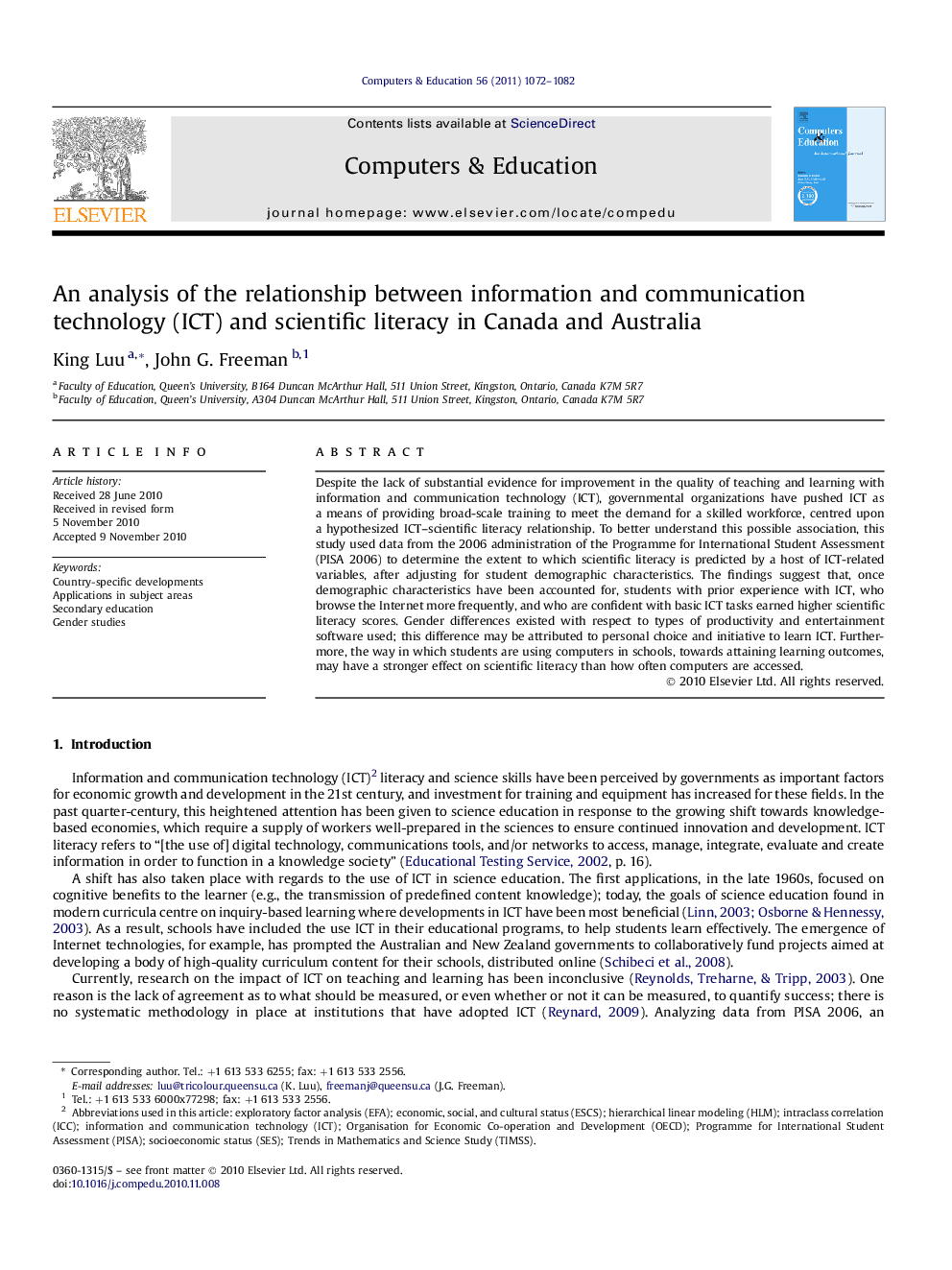| Article ID | Journal | Published Year | Pages | File Type |
|---|---|---|---|---|
| 349174 | Computers & Education | 2011 | 11 Pages |
Despite the lack of substantial evidence for improvement in the quality of teaching and learning with information and communication technology (ICT), governmental organizations have pushed ICT as a means of providing broad-scale training to meet the demand for a skilled workforce, centred upon a hypothesized ICT–scientific literacy relationship. To better understand this possible association, this study used data from the 2006 administration of the Programme for International Student Assessment (PISA 2006) to determine the extent to which scientific literacy is predicted by a host of ICT-related variables, after adjusting for student demographic characteristics. The findings suggest that, once demographic characteristics have been accounted for, students with prior experience with ICT, who browse the Internet more frequently, and who are confident with basic ICT tasks earned higher scientific literacy scores. Gender differences existed with respect to types of productivity and entertainment software used; this difference may be attributed to personal choice and initiative to learn ICT. Furthermore, the way in which students are using computers in schools, towards attaining learning outcomes, may have a stronger effect on scientific literacy than how often computers are accessed.
Research highlights►Use of ICT for productivity, but not entertainment, beneficial to science achievement. ►ICT use at home positively related to science achievement but may be related with SES. ►Mean SES explained much of the school-level variance in science achievement scores.
